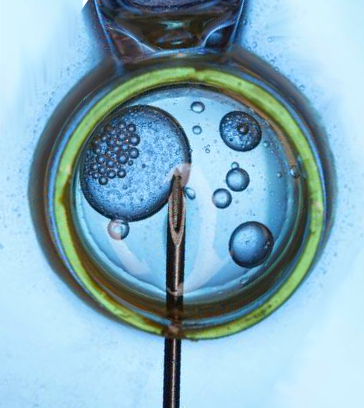Three-donor IVF backed
 A Senate committee has recommended a move towards three-parent IVF.
A Senate committee has recommended a move towards three-parent IVF.
Australian women at risk of giving birth to a baby with severe mitochondrial disease may soon be able to have healthy children, following the Senate Community Affairs References Committee recommendation.
The review called for the legalisation mitochondrial donation - a ground-breaking IVF technique that replaces energy-generating DNA in the mother’s egg with donor material.
Mitochondrial donation involves replacing the faulty mitochondrial DNA in the mother’s egg (0.1 per cent of its genetic material) with healthy donor mitochondrial DNA so the resulting baby will not suffer mitochondrial disease.
The mother’s and father’s nuclear DNA contributes more than 20,000 genes or 99.9 per cent of the baby’s genetic make-up and determines its appearance, intelligence, behaviour and other personal characteristics. The 0.1 per cent contribution (37 genes) from the donor egg means the resulting baby’s cells can effectively convert food and oxygen into the energy needed to power its organs.
Depending on which parts of their bodies are most affected and to what extent, people with mitochondrial disease can lose their sight or hearing, be unable to walk, eat or talk normally, have strokes or seizures, develop liver disease or diabetes, suffer cardiac, respiratory or digestive problems, or experience developmental delays or intellectual disability.
The Committee’s report has been welcomed by the Australian Mitochondrial Disease Foundation (AMDF).
AMDF Chairman Dr Doug Lingard says the Federal Government should act on the Committee’s recommendations as soon as possible.
“At least 60 Australian babies each year could be prevented from suffering severely disabling and potentially fatal forms of mitochondrial disease if mitochondrial donation was available here. It offers the first practical hope for future generations to live free of maternally inherited mitochondrial disease,” Dr Lingard said.
“In the AMDF’s experience engaging with the Australian public, politicians and other stakeholders, including a Citizens’ Jury in 2017, mitochondrial donation receives overwhelming support when people understand the procedure and its ramifications.
“By acting promptly to change our laws, Australia could become the second country in the world to establish a regulated system to provide mitochondrial donation to families affected by this devastating disease.
“After ten years of scientific research, ethical review and consultation, in 2015 the UK made pioneering legislative changes to allow mitochondrial donation; these were endorsed in 2016 by the Human Fertilisation and Embryology Authority, and the first clinic and patient licences were issued in 2017.
“The Committee clearly recognises that the UK’s strict regulatory system for mitochondrial donation provides a sound basis for Australia, with only minor changes likely to be required to reflect our local context.
“The AMDF supports the pathway towards legislation recommended by the Committee.
“We stand ready to help in the public consultation process and urge the Australian Government to seek the advice of the National Health and Medical Research Council as soon as possible,” Dr Lingard said.








 Print
Print